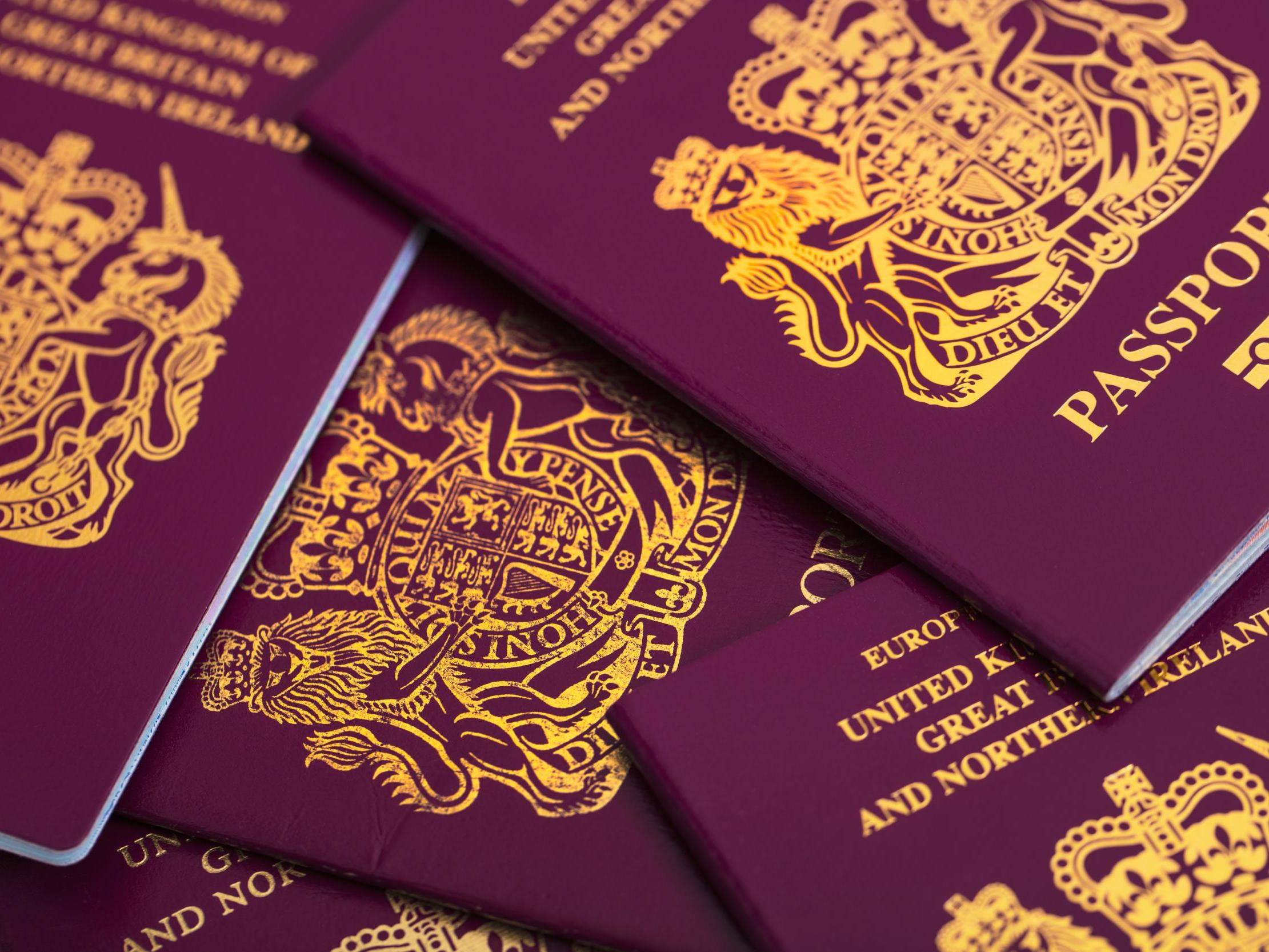What happens to my passport after Brexit?
Analysis: Leaving the EU means we’ll get navy passports once again, but what else? Peter Stubley looks at how your entry to the continent will be affected

Everybody knows that one of the suggested benefits of Brexit is that UK passports will change colour from burgundy to blue – in an attempt to “restore our national identity”.
This will not magically happen the moment the UK leaves the EU on 29 March.
The new blue and gold passports, complete with a new, super-strength plastic polycarbonate picture page, will only be issued to those renewing or applying for a new passport from October 2019.
In the intervening six months, burgundy passports will continue to be issued – but with no reference to the European Union.
When it announced the change, the government said that there was no need for British passport holders to do anything ahead of their current passport renewal date.
However, this did not take account of the possibility of the UK leaving the EU with no deal, resulting in British citizens being treated as “third country nationals”.
This would mean changes to two rules on travel to EU countries, according to the latest government advice.
Firstly, your passport should be valid for six months from the date of arrival (similar to the requirements for travel to other countries outside the EU).
Secondly, your passport may not be valid if it was issued more than 10 years ago.
Until September 2018, if you renewed your passport before it expired, the UK issued a new passport with up to nine months of unexpired time added. Therefore any extra months on your passport over 10 years may not count towards the six months that should be remaining for travel to most countries in Europe.
Combining these two rule changes means that there are some passports out there which could be rejected even though they expire 14 months and 29 days after the date of travel.
However, these rules do not apply when travelling to Ireland. To try to eliminate any confusion, the government website has a new passport checker service to see whether you should renew your documents or not.
If the UK leaves with a deal, travel to the EU should remain the same as now until at least 31 December 2020.
That would mean UK passports would be valid for travel anywhere in the Schengen area (the vast majority of EU countries as well as Switzerland, Norway, Iceland and Liechtenstein) up to and including the expiry date.
Got an unanswered question about Brexit? Send it to editor@independent.co.uk and we’ll do our best to supply an answer in our Brexit Explained series
Join our commenting forum
Join thought-provoking conversations, follow other Independent readers and see their replies
Comments